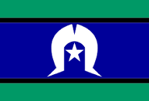Project ECHO (Extension for Community Healthcare Outcomes) is a knowledge sharing model that supports health care providers to provide best practice care in their communities.
Project ECHO® is an innovative model of inter-professional education and case-based learning. It aims to democratise clinical knowledge and deliver best-practice care to people in communities that lack access to specialists. Whether difficulty accessing specialists is due to remoteness, travel costs and time, cultural barriers, or other factors, ECHO® helps to address inequities faced by patients, their carers, and their families.
The model can be applied to a range of fields, we are tailoring the pilot series to focus on people with challenging behaviours related to neurological, intellectual, or psychosocial disabilities living in the NT.
The main aim of the project is to democratise clinical knowledge through the ‘movement of knowledge’. Our pilot program aims to:
- assist GPs and primary care practitioners to gain disability specialist skills and knowledge
- alleviate long wait and travel times to see specialists
- create a virtual community of practice in the disability network
- strengthen knowledge and referral pathways.
Project ECHO® is a virtual peer-group learning model for primary health care providers, including general practitioners, nurses, allied health professionals and community health workers.
Subject matter experts (SMEs) mentor providers by using interactive, online technology and a structured case discussion format. These providers deliver frontline services to people with a disability, and their carers, who are in need of rapid access to specialist care. Local health professionals are empowered to provide best-practice care and establish expert-level capabilities through mentoring and participating in an inter-professional community of practice.
The ECHO model uses didactic education and case-based discussion to deliver an interactive and reflective professional support and learning community.
ECHO brings together content and context experts to build communities of practice. ECHO participants gain knowledge and confidence to manage patients with complex presentations in their own local communities.
Project ECHO® comprises a series of monthly ECHO sessions via videoconference. Each ECHO session consists of a brief presentation from a set curriculum designed in consultation with potential participants, followed by a participant-led de-identified case presentation with facilitated discussion. Following sessions, a brief written summary of the presented case with treatment recommendations is provided to participants.
All healthcare providers, support workers, and carers who support people with complex mental health conditions.
GPs
Practice Nurses
Allied Health Clinicians
Local Health District Clinicians
Community health workers
Support workers
Carers
We are still confirming dates for future sessions.
Fill out this online form to register your interest in Project ECHO. We'll get back to you to let you know if you're eligible.
Project ECHO is funded by the Department of Social Services
Subject Matter Experts
 Bridget is the NT Health, Professional Lead for Cognition, Delirium and Behaviour Change whose scope is across the five Regions for the Centre of Excellence and Patient Safety.
Bridget is the NT Health, Professional Lead for Cognition, Delirium and Behaviour Change whose scope is across the five Regions for the Centre of Excellence and Patient Safety.
An Accredited Mental Health Occupational Therapist, practicing for 20 years, Bridget is passionate about enhancing the health service to provide innovative care and encourage curiosity and engagement around changes of behaviour and cognition, partnering with the NT’s multi-cultural consumers to provide less restrictive care.
With a background in Sociology, Bridget holds a Bachelor in same, along with a Bachelor of Occupational Therapy, and a Masters in Mental Health.
Bridget is the Chair of NT wide Cognition and Delirium, Behaviours of Concern and Restrictive Practices NSQHS Committees and the Co-Chair of the Mental Health Clinical Collaborative. An NT branch member of the Australian Association of Gerontology and a regular presenter at the Australian Delirium Association Conference, Declared, Bridget is a regular contributor to Clinical Teaching, Research Forums, Policy, Governance and Quality Improvement.

Nirosha is the current recipient of the Norma Parker Award 2022, and has been awarded as the best new author in the Journal of Australian Social work.
Nirosha currently works for NT Health in the Child and Adolescent Mental Health Service - Central Australia as a Senior Specialist Mental Health Social Worker, and as a casual academic in the Faculty of Social Work at Charles Darwin University - Alice Springs.
Nirosha has 8 years of combined experience as both a Mental Health Social Worker and Disability Academic in VIC, NSW, and the NT. Having worked for many years across a range of specialist child and adolescent settings, including youth early psychosis, OOHC, youth and family crisis, dual diagnosis, multicultural disability and schools, Nirosha is skilled in providing specialist clinical assessment and intervention for children and young people with complex needs.
As a current PhD candidate and academic in the Faculty of Social Work and Special Education at UNSW, Nirosha has experience in flexible teaching methods, both on-campus and virtually online as a lecturer, tutor and assessor, teaching courses across social work and special education in the areas of mental health, trauma and challenging behaviors related to intellectual, neurological and psychosocial disability, to name a few.
Nirosha has written a thesis in the Master of Public Health at The University of Melbourne on Fetal Alcohol Spectrum Disorder (FASD) Diagnosis in Victorian Hospitals, and is currently completing a PhD in social work on FASD in Rural and Remote Communities in Australia. She is most passionate about working with children, adolescents and families with a lived experience of FASD, and supporting them to meet their psycho-social needs and realise their potential across the life course.
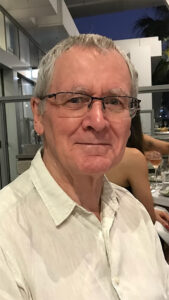 Dr Chapman is currently on extended leave from the Top End Mental Health Service, and works part time as a Consultant Psychiatrist in private practice.
Dr Chapman is currently on extended leave from the Top End Mental Health Service, and works part time as a Consultant Psychiatrist in private practice.
He has over 10 years’ experience in Adult ADHD, which has been reinforced by attendance at many International and Australian conferences, and is a member of the World Federation of ADHD and the Australian Association of ADHD Professionals. David is the NT representative on the Royal Australian and New Zealand College of Psychiatrists Bi-National ADHD Network Committee.
David is an Honorary Consultant in Women’s Mental Health at the Monash-Alfred Psychiatry Research Centre, where he developed a further understanding of ADHD in Females in addition to gaining experience in the complex area of Women’s mental health. An outcome of this has been an appointment as a Collaborator in the ADHD in Females Special Interest Group of the HER Centre Australia. This complements a similar role in the Bellgrove Laboratory of the Turner Institute for Brain and Mental Health of Monash University.
In undertaking clinical care of adults with ADHD, David also has some experience with those who have Asperger syndrome as a co-morbidity. This has brought some understanding of the under-diagnosis of women with both ADHD and Autism Spectrum Disorder, and a greater awareness of the range of presentation of these disorders. His learning and experience in women’s mental health has led to a wider understanding of the effects of hormones in ADHD in particular, but also to the inter-relationship of all body systems in mental health.
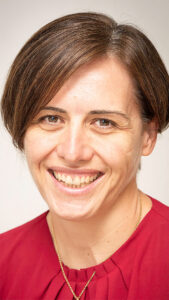 Dr Fiona Kay has worked in paediatrics for 21 years, and as a consultant paediatrician for 15 years, most of which has involved working in the area of developmental paediatrics caring for children and adolescents up to 18 years of age with a wide range of conditions and needs. This includes areas of neurodevelopmental and behavioural paediatrics, and paediatric rehabilitation.
Dr Fiona Kay has worked in paediatrics for 21 years, and as a consultant paediatrician for 15 years, most of which has involved working in the area of developmental paediatrics caring for children and adolescents up to 18 years of age with a wide range of conditions and needs. This includes areas of neurodevelopmental and behavioural paediatrics, and paediatric rehabilitation.
Dr Kay has a breadth of experience in the diagnosis and ongoing management of these children, working with allied health and other medical professionals, and has completed post-graduate qualification.
Over her career she has worked in urban, regional, and remote settings, and worked solely in regional or remote centres for the last 11 years. As such, Dr Kay appreciates the challenges that working regionally can incur, the value of having a strong professional support network to draw on and being able to have the opportunity to learn remotely, when possible, in order to build knowledge and skills for managing patients in their own community as much as possible.
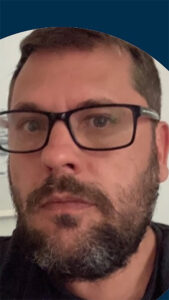 David is a consultant psychiatrist. He is the current Chief Psychiatrist of the NT and a Clinical Professor at CDU MENZIES school of Medicine and an Adjunct Professor at Flinders University.
David is a consultant psychiatrist. He is the current Chief Psychiatrist of the NT and a Clinical Professor at CDU MENZIES school of Medicine and an Adjunct Professor at Flinders University.
He is also an affiliate of the Black Dog Institute in Sydney and has held teaching and research appointments at the Baker IDI Research Institute, Melbourne. His interests are in both education and research. He has worked with primary health care to enhance the mental health skills of General Practitioner, Nurses, Psychologists and Allied Health Professionals. He the co-Director of Training for psychiatry in the NT. He is a member of the Royal Australian and New Zealand’s College of Psychiatry’s National Committee for Continuing Professional Development.
His research interests lie in health system evaluation and the interface of psychiatry and public health. This is augmented by a range of clinical experiences that include having been a commissioned officer in the RAAF, an RFDS Medical officer in Far North Queensland and a remote and rural practitioner. This underpins his interest in veterans and military mental health, transcultural psychiatry and as well as the delivery of health care in remote and rural regions of Australia.
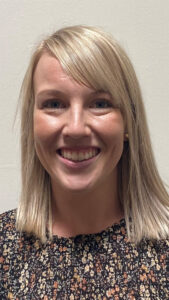 Isobel Elliott is an Occupational Therapist who currently works for the Northern Territory Government - Mental Health, Central Australia Region.
Isobel Elliott is an Occupational Therapist who currently works for the Northern Territory Government - Mental Health, Central Australia Region.
Isobel holds a Bachelor of Health Science, Master of Occupational Therapy and Graduate Certificate in Clinical Redesign.
Isobel is provisionally registered as a Behaviour Support Practitioner with the NDIS. She has been working as an OT for 8 years.
Since moving to the NT 4 years ago, Isobel has worked with a number of agencies within the Department of Health including Alice Springs Hospital, the Forensic Disability Unit and Mental Health. During her time with the Forensic Disability Unit, Isobel supported clients on custodial and non-¬ custodial supervision orders to increase their engagement in their activities of daily living while also supporting staff to manage and respond to risks associated with behaviours of concern.
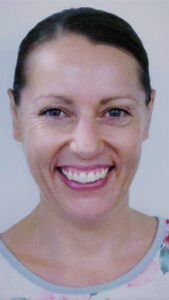 Susan Fallon is a registered psychologist with a background in disability and currently employed as Senior Practitioner, Restrictive Practices Authorisation Unit, NT Health Department.
Susan Fallon is a registered psychologist with a background in disability and currently employed as Senior Practitioner, Restrictive Practices Authorisation Unit, NT Health Department.
Susan has 20+ years’ experience working in the area of disability and positive behaviour support.
Susan is currently part of the National Senior Practitioner Leadership group which reviews current and emerging contemporary issues.
Susan currently runs NT wide behaviour support practitioner Communities of Practice and also engages in building the capability of organisations in the NT disability sector.
Susan’s current key knowledge area is restrictive practices and positive behaviour support.



